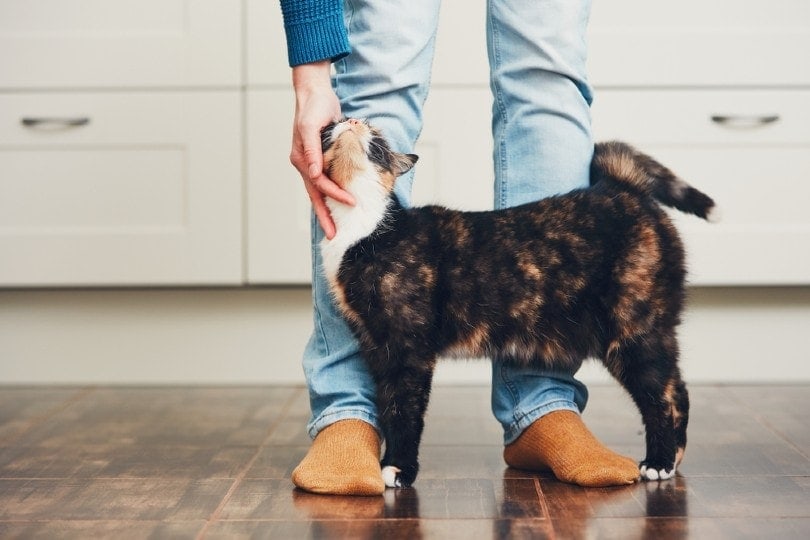Do Male Cats Scratch More Than Females? Facts & Care Tips

Updated on
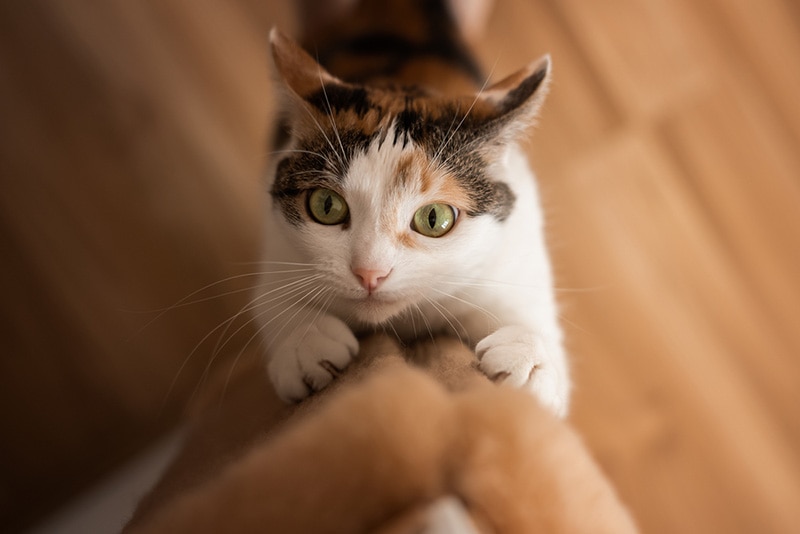
Click to Skip Ahead
If you have a cat, you’re likely already a lover of everything feline. But one of the main sticking points of owning a cat is the scratching. They may scratch your favorite chair, your carpets, and sometimes everything but the scratching post!
If you’ve been thinking of bringing home a new cat but are wondering if the scratching behavior is sex-based, know that there is no definitive proof that male cats scratch more than females.
If you would like to learn more about what drives cats to scratch and a few methods to prevent them from scratching your favorite furniture, keep reading!
Why Do Cats Scratch?
To better understand if males scratch more than females, let’s cover the various reasons that cats scratch to begin with.
1. Sharpening the Claws
Each of a cat’s claws constantly sheds its outer layer for a sharper and healthier nail underneath. You might notice little nail “husks” lying on your floors at times.
Sharpening their claws helps remove the outer layer for those nice sharp claws, which enable them to run away and go up a tree or to nab their dinner.
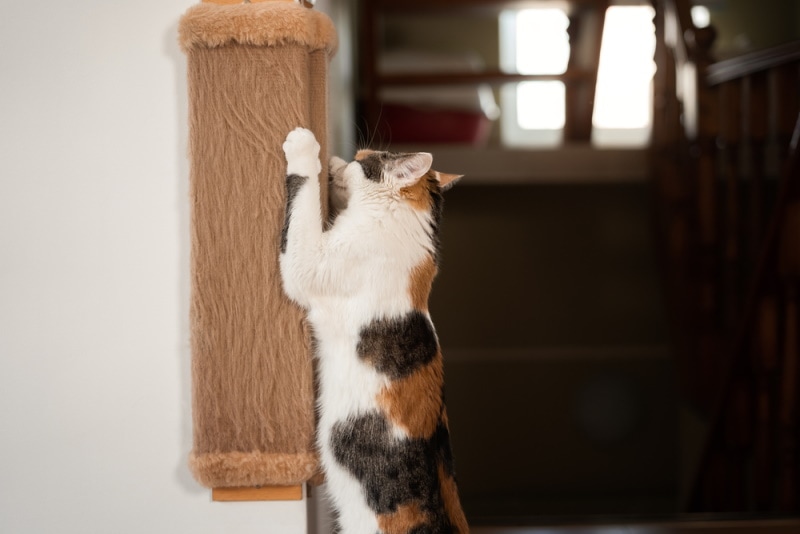
2. Stretching
While sharpening their claws, cats also get a nice stretch in. You might notice your cat extending their entire body into one long stretch while they scratch. This enables them to limber up and exercise their joints, tendons, and muscles in their shoulders, backs, legs, feet, and toes.
3. Expressing How They Feel
Scratching their claws is an instinctive behavior. Cats will often scratch when they are excited and sometimes when they’re stressed.
If you’ve noticed your cat scratching furiously when you get home, they are likely happy and excited, and this is their way of expressing it.
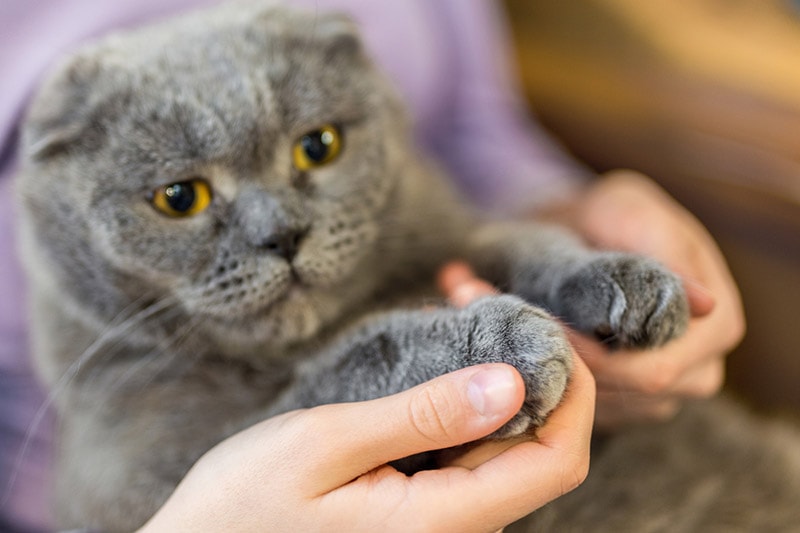
4. Marking Territory
This is why it’s theorized that male cats scratch more than females. Cats have sweat and scent glands between their paw pads. When they run their paws along the surface that they are scratching, they are marking that surface with their scent.
The combination of the claw husks and the scent that they leave behind sends a message to other cats that this is part of their territory. This is important to outdoor cats, but neutered indoor cats will also engage in this marking behavior.
Do Male Cats Scratch More Than Females?
When it comes to scratching, it all comes down to individual cats and their temperaments, more so than their sex. However, unneutered male cats are more likely to scratch than females because they are more territorial.
Unneutered males are driven more by instinct because of their drive to procreate. This is what compels them to mark their territory by scratching and spraying urine. This sends a warning and message to other male cats to keep out of their territory and away from any available females.
That said, unspayed females can scratch excessively due to frustration and excess energy when they are in heat. But technically, unneutered males are likelier to scratch than unspayed females.
Once they have been neutered and spayed, the scratching does come down to the individual cat.
The More They Destroy Your Furniture, the More They Love You
A 2022 Brazilian study used an online survey for cat owners that determined that there was a definite link between how much “unacceptable behavior” was displayed by their cats and how close the cat parents were with their pets1.
It turns out that while certain “problem behaviors” had no real link to the emotional bond between cats and their owners (including being aggressive, excessive meowing, and house-soiling), scratching was different. The researchers found that cats that didn’t scratch the furniture much also had less of an emotional bond with their owners. No one is sure why this is, but the takeaway here is that your cat is more likely to scratch your furniture when they have a strong bond with you.
Maybe this can be of comfort when your cat constantly scratches up your furniture—it just means they love you!
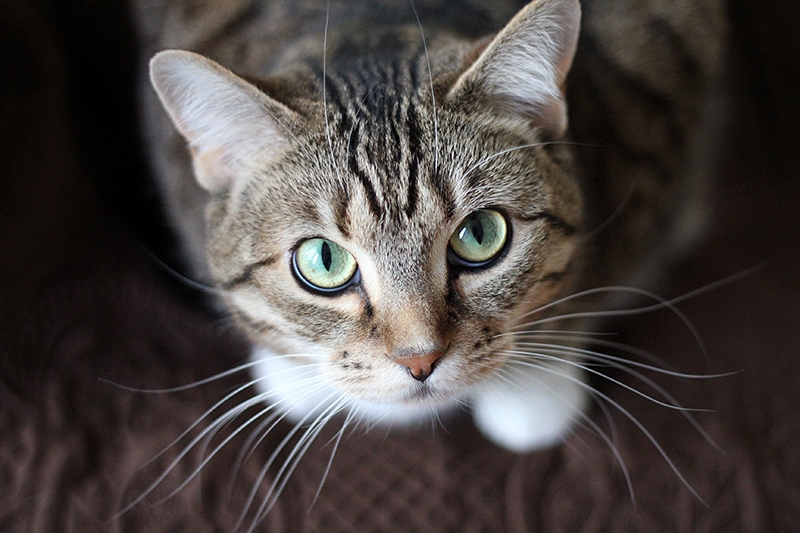
How to Stop Your Cat From Scratching Your Furniture
There are a few things that you can try that should help your cat from scratching your furniture.
Get a Scratching Post
Your cat needs another surface to scratch other than your furniture. It can help have multiple surfaces, so consider investing in a cat tree and several scratching posts. Also, try different materials, such as cardboard, sisal rope, and carpeting.
All scratching posts must be stable enough not to move, let alone tip over, during a good scratching session. It should also be long enough that your cat gets to fully stretch while scratching. You can also try different positions, such as vertical and horizontal.

Put the Scratching Post in the Right Place
The scratching posts must be placed somewhere that your cat feels comfortable. If your cat’s favorite place to scratch is the arm of your couch, put the cat tree or scratching post next to the couch.
Also, try placing a scratching post near your cat’s favorite sleeping spot. A cat tree is a good option here because your cat might switch where they sleep in favor of the cat tree, which also gives them great scratching opportunities.
If your cat takes to it, that’s great! But if they don’t, you might want to add enticements like toys and catnip. Keep trying it in different locations until your cat seems more comfortable using it.
Remove Their Scent
When cats scratch, they leave their scent behind, so you should attempt to remove their scent completely. If the scent has started to fade, your cat will go back for more scratching sessions to replenish the scent. But if their scent is completely gone, they might not necessarily go back.
Using a repellent can help with this, as can using furniture protectors. Just be sure that whatever you use to protect your furniture is non-toxic to your cat.
See If they Are Bored
Sometimes, cats scratch because they are bored, so you should have one-on-one time with your cat every day. Play with them using a variety of toys; wand toys are good options.
Cats, especially indoor cats, need extra exercise and diversions, so look into interactive toys like motion and catnip toys that can keep them busy when you’re not around.
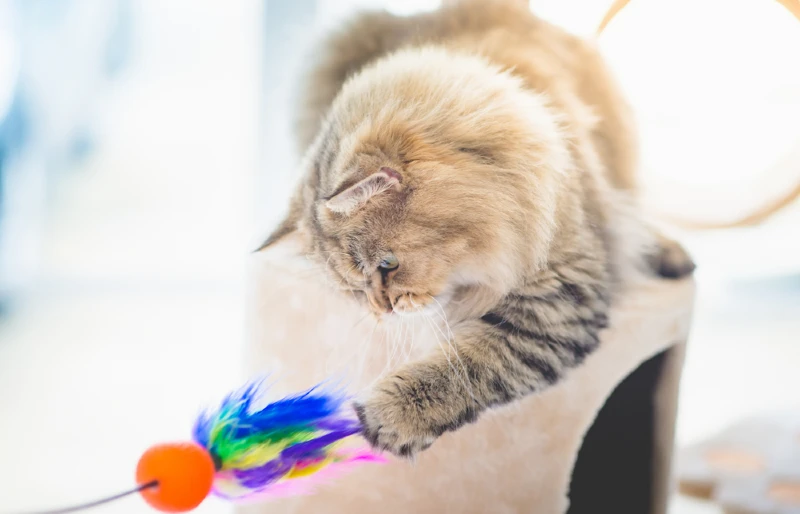
Trim Those Nails
Keeping your cat’s nails trimmed will help prevent excess damage to your belongings. This isn’t a deterrent, but it can help, particularly when you’re not around and your cat scratches your couch again.
Regular nail trims should be done with proper cat nail clippers. You can opt for a groomer to trim your cat’s nails if you have trouble doing it yourself. There are also nail caps that you can put on your cat.
Conclusion
Unless you plan on owning an unneutered male (which is not recommended unless you’re a breeder), both male and female cats will generally scratch the same amount.
Scratching is an instinctual behavior that cats do for several reasons: marking their territory, stretching their muscles, sharpening their claws, and perhaps showing that they love you. If you’re concerned about damage to your property, set up multiple scratching posts, and place them in areas your cat seems most comfortable.
Males and females alike will scratch, so focus on temperament when you plan on bringing home a new cat.
Featured Image Credit: Evgenia Terekhova, Shutterstock



